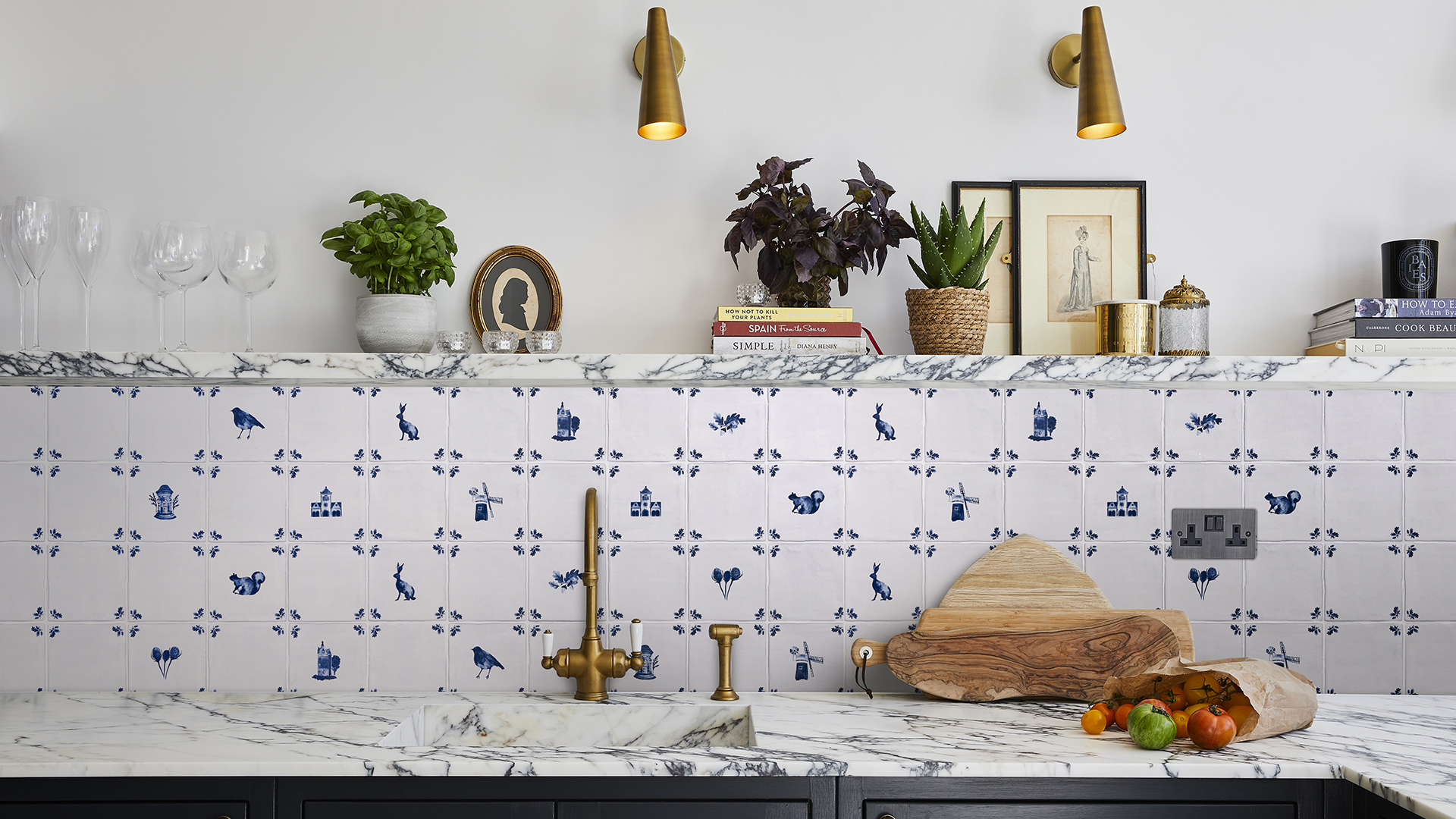
Modern rustic style is going nowhere in 2024, of course, however, we are seeing new ways to create the new/old look and this tile trend is one of the easiest ways to give your spaces that vintage feel.
With the deepest roots set in Europe, Delftware is characterized by blue and white patterns with charming, borderline kitsch, details of everyday scenes from the past. Ship sails, floral displays, mythological creatures, horses, and carriages, are just some of the settings often found on Delft tiles.
It's a traditional look yes, but this historical ceramic pairs just as well with sleek modern kitchens as it does with the rustic farmhouse style. If you are looking for a way to add more character to a kitchen, bathroom, or fireplace, Delft tiles are the interior design trend to embrace right now.
What are Delft tiles and where do they come from?
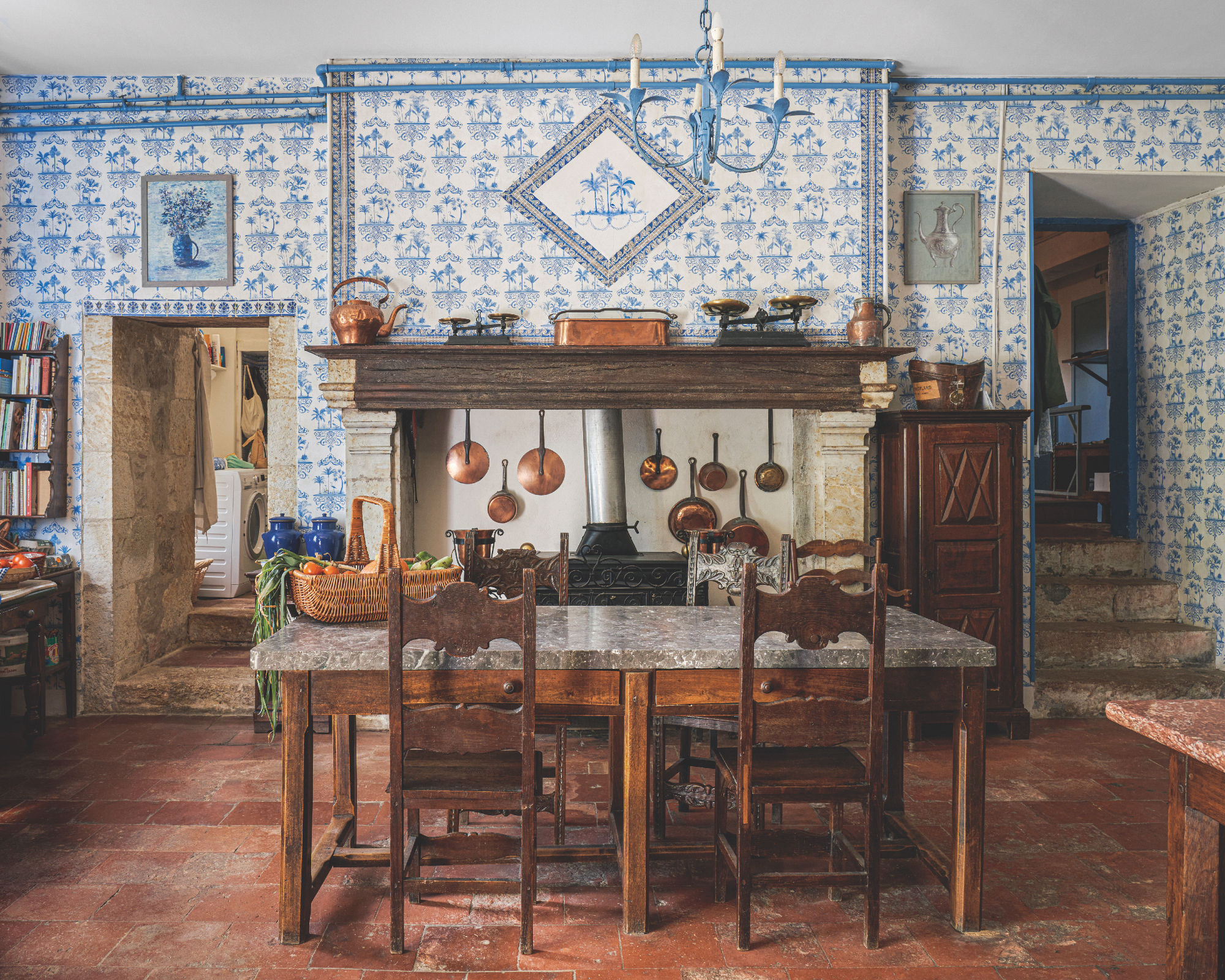
Delft tiles have a rich history and flourished in seventeenth-century Holland where much of Delftware was said to be inspired by imported blue and white ceramics from China. Delft tiles are hand-painted and iconic in design, and since they were typically used by architects and designers to enhance historic homes, we wonder how they might find their way into more contemporary settings today.
'Delft tiles are iconic beautiful blue and white tiles that have been made in the town of Delft in the Netherlands since 1653,' Ami McKay, creator of PURE Design: Interior Design, Build & Shoppe tells us. 'They are often seen in the kitchen or on a fireplace in Europe.'
We called on Dutch Tile Inc, a family-run business that has been importing Delft tiles for more than four decades, to learn more about the origin of these tiles. 'Dutch tiles can be found in historic houses in the US,' says Cavarly Garrett of Dutch Tile Inc. Delft tiles were displayed with pride, bringing history and heritage to a home: 'These tiles were a mark of prosperity.'
How to use Delft tiles in the modern home
The thoughtful approach that comes with commissioning a Delft tile we think epitomizes modern-day design. Modern rustic decor will forever be on trend, with much of its appeal cemented in the fact that it lends itself to flexibility. Here are some modern suggestions for including the charming appeal of Delft tiles into your home:
1. Integrate Delft tiles in small but impactful amounts
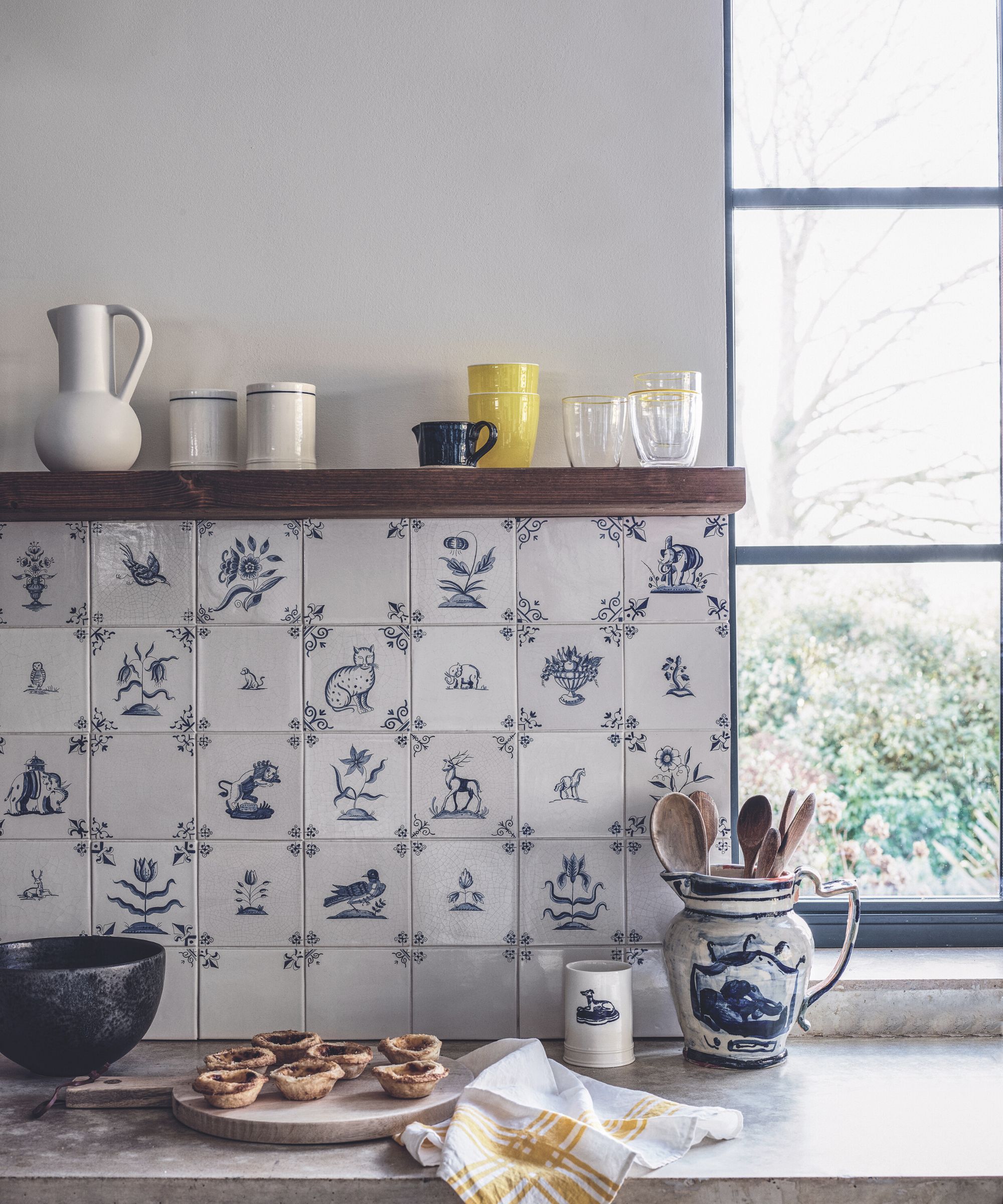
It seems that a minimal and 'less-is-more' approach to installing this kind of tile might be the secret to making Delftwork in a home with a modern farmhouse or other more contemporary style. As is leaning into the element of surprise:
‘Incorporating delft tiles into the home adds a touch of sophistication to various spaces and elevates the overall aesthetic,' says Interior architect and designer Shalini Misra. 'I love to integrate them into a fireplace surround or in unexpected places to bring a sense of curated elegance to a room.’
'The simple, classic blue and white color palette and versatility of delft tiles also allows for creative combinations with other interior design styles, making them a delightful addition to both traditional and contemporary interiors. They’re easy to mix into existing decor, but also serve as an elegant starting point for a fresh design scheme,' continues Misra.
2. Choose a design that 'speaks to you'
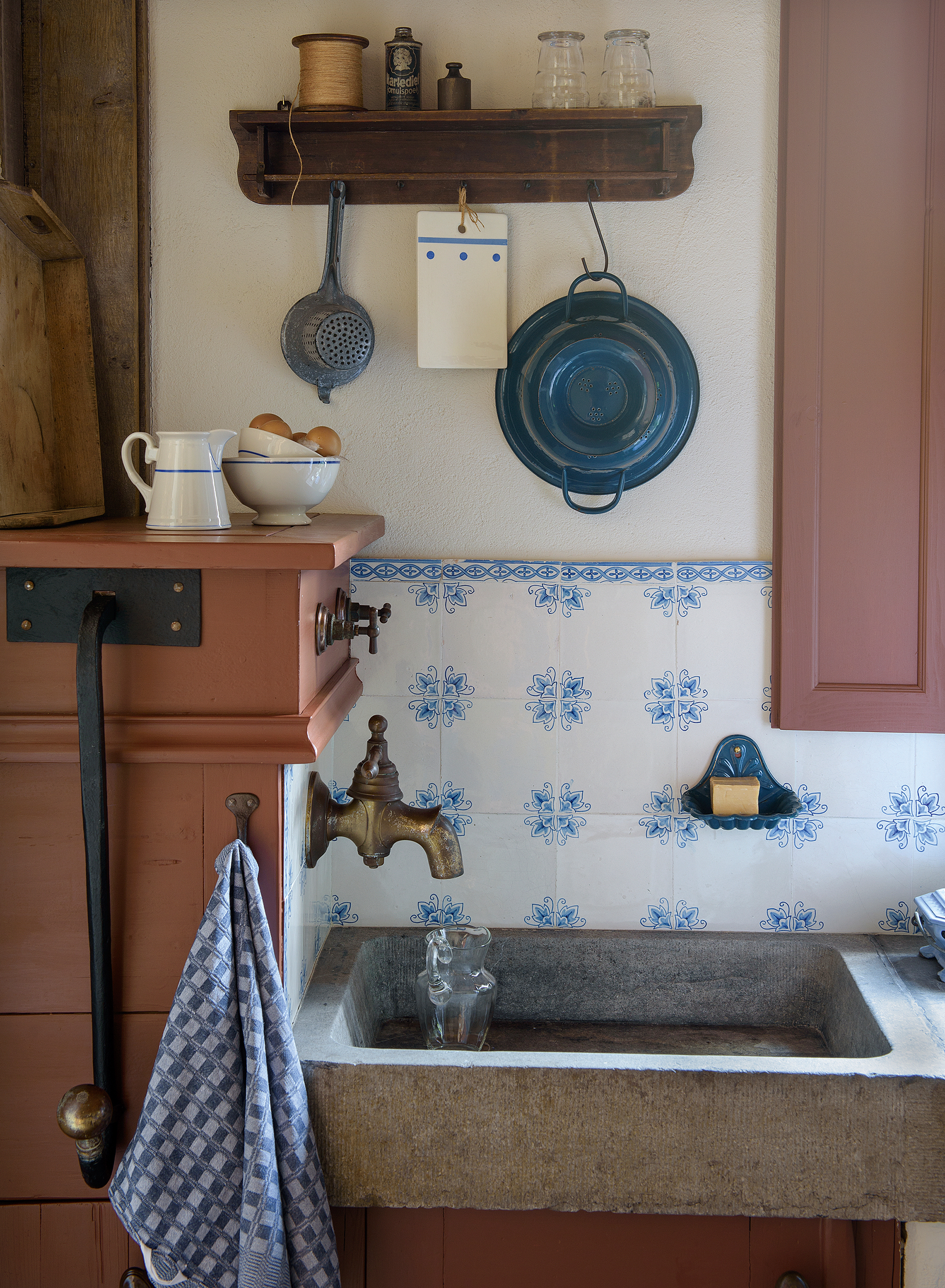
Choosing your design is just the start, but keeping it personal to you, your style, and perhaps family history will tap into the beautiful tradition that comes with a Delft tile. 'The variations are vast, and if you wanted to use them in a more modern home, I would suggest looking for a tile that is minimal in design and one that speaks to you and your home,' says McKay.
'Even a modern or contemporary space should incorporate some handcrafted details and a simple blue and white tile can find a home as a well-placed detail. For example, put them on a simple form such as a floating pedestal, a hood fan or on your kitchen island and keep the rest of the home clean and minimal.'
3. Use Delft alongside a simple scheme
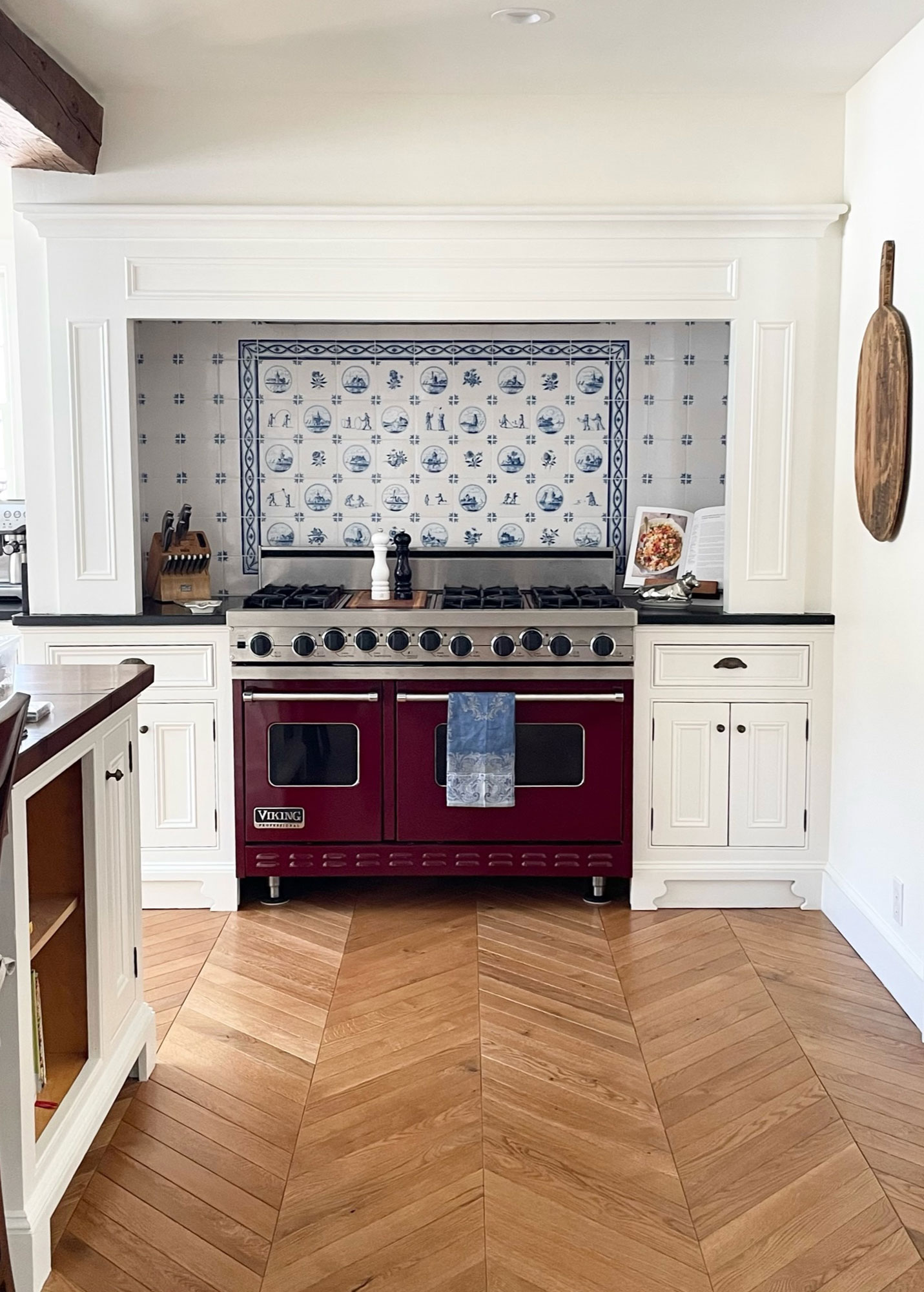
With this said, if you lean into a very modern look you have to tread carefully with this type of tile and make sure you keep a sense of balance. Instead of going all Delft, consider incorporating just a few to add detail to a fireplace surround, or kitchen tile backsplash, for example.
'I have actually never worked with them as our clients typically want a more modern look,' Interior designer Amy Youngblood shares with H&G. 'I personally think they are really tough to use in a more modern home. If they are going to be used, they could go a bit more transitional when laid out in a clean-lined pattern more spread apart with simple plain tiles.'
FAQ
Are Delft tiles still fashionable?
Elevating craftsmanship is an intrinsic part of designing a home that never dates, for which Delft tiles make perfect contenders. 'For people with an appreciation for quality craftsmanship and classic design, delft tile have always been in fashion,' says Garrett.
'The opportunity to customize appeals to customers seeking a unique installation,' and it appears that the popularity of Delft tiles is here to stay. 'All our tiles are artisan-made: cutting the clay to hand painting allowing nearly infinite options selecting not just the decorative image but the corner pattern, background white, and design color.
'From classic flowers, landscapes, and windmills to whimsical touches of bees, butterflies, and frogs, there is no right or wrong when it comes to design with delft tiles. One customer commissioned portraits of all her pets and farm animals for her fireplace surround.'
Can you have colored Dutch tiles?
The charm of classic white and blue painted Deflt tile will add charm to white bathroom tile and will no doubt be one of the more unique bathroom floor tile ideas you come across. But they can be colored, with warm yellows and red hues bringing even simple designs to life.
'Traditionally delft tiles have been used as fireplace surrounds, and kitchen and bathroom backsplashes. Although blue and white are most common, historic tiles can also be found as polychrome and sepia,' shares Garrett.
Delft tiles may be coming back into style for 2024, but the design has been around for centuries so you don't need to worry about it dating. They work so well with the modern rustic trend in particular, however, they are adaptable and if you went for a more pared-back design, they would be ideal for adding character to even the most modern of spaces.







